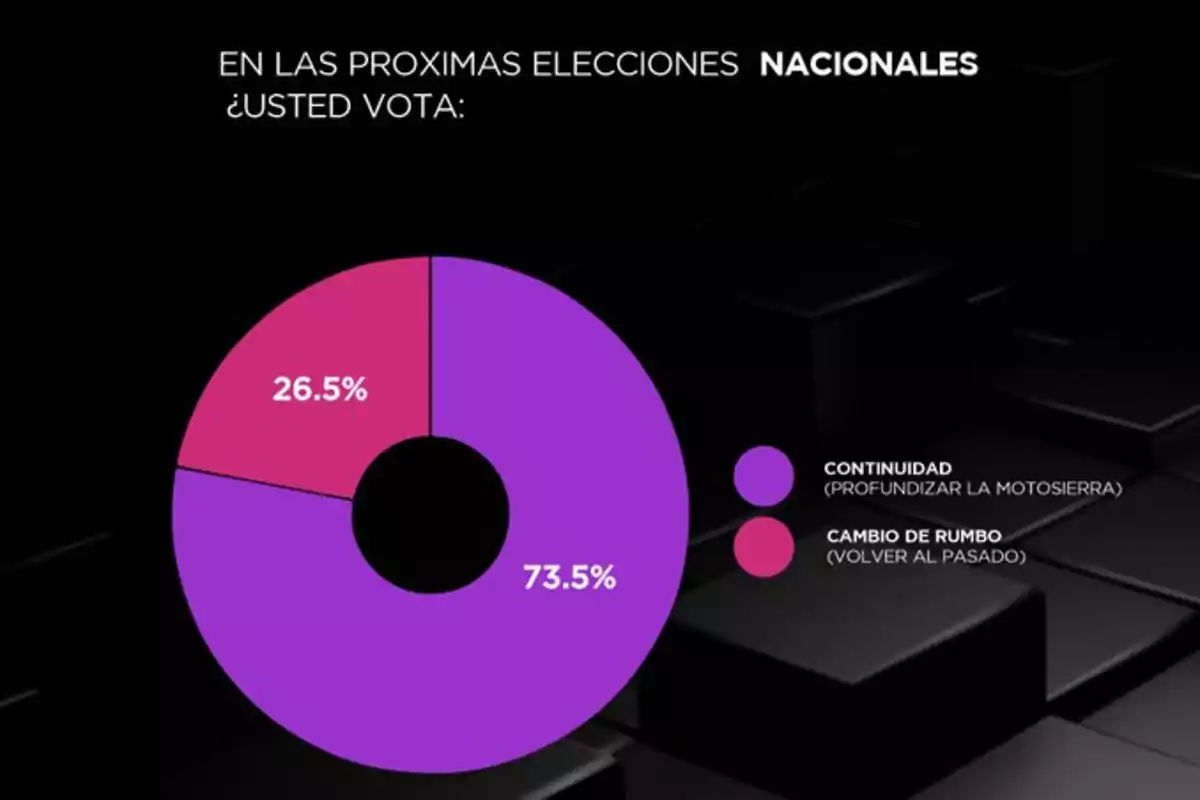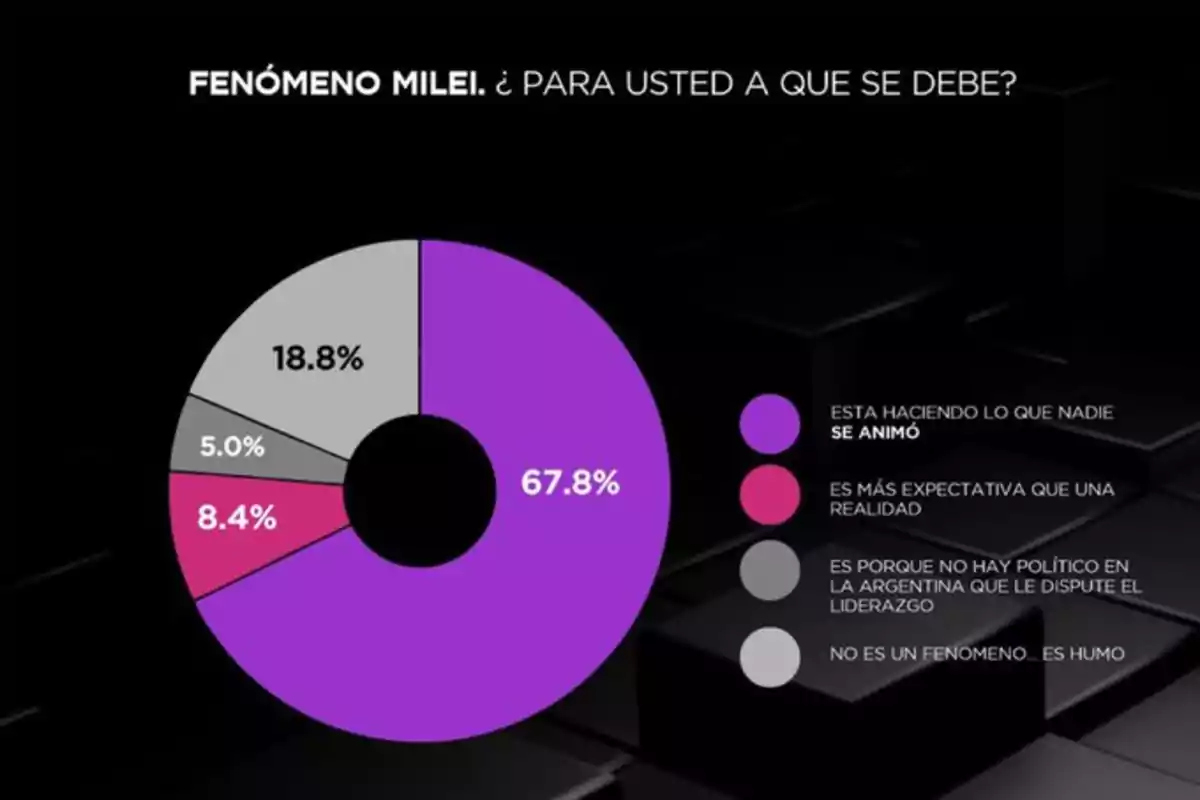
73.5% of Argentinians support Milei's program and reject going back to the past
This is revealed by a national survey conducted by DC Consultores, which confirms the majority support for the libertarian administration
The vast majority of Argentines prefer to stay on the path initiated by President Javier Milei and deepen the ongoing reforms rather than return to the disastrous Kirchnerist policies of the past.
This is revealed by a recent national survey from DC Consultores, which confirms the majority support for the libertarian administration and the lack of a clear political alternative on the horizon.
According to the study, conducted between July 8 and 9 with 1,830 cases across the country, 73.5% of respondents said that in the October elections they will vote for the continuity of the current course, while only 26.5% expressed their intention to opt for a "change of course" which, according to the terms of the survey, would mean "returning to the past".
The results not only consolidate Milei's leadership, but also reflect an explicit approval of his reform program and a clear social mandate in favor of continuing to cut public spending, deregulate the economy, and advance with his "chainsaw" approach to the State.

The Milei phenomenon
Another survey by the same consulting firm also investigated the so-called "Milei phenomenon" and its origin, showing that more than two-thirds of the population (67.8%) believe that the president is doing what no one else dared to do before. Only 18.8% dismissed the phenomenon as "smoke and mirrors," while 8.4% attributed it to expectations rather than concrete results.
Another revealing fact is that just 5% of those surveyed believe that Milei prevails only because he has no political rival. This suggests that the support doesn't arise from a power vacuum, but from citizen conviction that the president represents a real change in the face of the failure of traditional political forces.

October is shaping up to be a new electoral endorsement
Looking ahead to the legislative elections in October, these figures represent a serious setback for opposition parties, especially Kirchnerism, which still has not managed to define a clear strategy or a figure who embodies a convincing alternative to the libertarian administration. In contrast, Milei appears increasingly consolidated as the axis of the new political order in Argentina.
With 73.5% of Argentines supporting the deepening of his plan and with an unprecedented level of ideological legitimacy for a non-Peronist government in decades, everything indicates that Javier Milei will reach October with strengthened political capital and in a position to significantly expand his legislative power.
In a regional context where many leaders are facing a decline in their image, Milei's figure, far from deflating, is consolidating as the exponent of a deep cultural change, with majority support and an electorate that, far from regretting, is asking for more.
More posts: